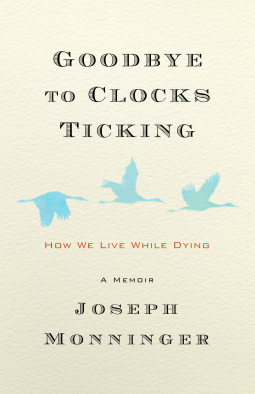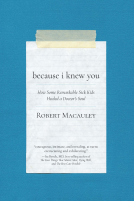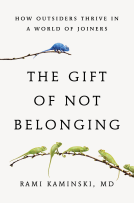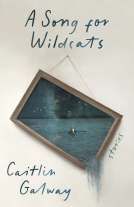
Goodbye to Clocks Ticking
How We Live While Dying
by Joseph Monninger
This title was previously available on NetGalley and is now archived.
Send NetGalley books directly to your Kindle or Kindle app
1
To read on a Kindle or Kindle app, please add kindle@netgalley.com as an approved email address to receive files in your Amazon account. Click here for step-by-step instructions.
2
Also find your Kindle email address within your Amazon account, and enter it here.
Pub Date Mar 14 2023 | Archive Date Jan 28 2023
Steerforth Press | Steerforth
Talking about this book? Use #GoodbyetoClocksTicking #NetGalley. More hashtag tips!
Description
For fans of Ann Patchett’s These Precious Days and Joan Didion's The Year of Magical Thinking
Goodbye to Clocks Ticking is an unforgettable book that tells the story of a singular year of challenges, insights, and peculiar gifts. It is also a sort of postcard from a place many of us will one day visit.
After thirty-two years of teaching, Joe Monninger, an avid outdoorsman in robust health, was looking forward to a long retirement with the love of his life in a cabin beside a New England estuary. Three days after his last class, however, he’s diagnosed with terminal lung cancer, even though he has not smoked for more than 30 years. It was May, and he might be dead by early fall.
Soon Joe learned, however, that he was a genetic match for treatment with a drug that could not cure his cancer, but could prolong his life. With this temporary reprieve, he sets out to live life to the fullest and to write about the year of grace that follows, from his cancer treatments to his innermost thoughts.
Goodbye to Clocks Ticking is a work of wisdom and insight. Joe Monninger’s aubade to the world that he knew and loved offers a page-turning, suspenseful story to relish and to celebrate, to share and to discuss, to ponder and to learn from.
"Full of heart and discovery." – Booklist, on Joseph Monninger's writing
Advance Praise
"Someone in need of precisely this book will pick it up, read it, and their spirit will be lifted."
--Jonathan Carroll, author of Mr. Breakfast
"This book is so powerful that I had to stop a couple times to stop my eyes from filling. I especially love Monninger's thoughts on nature and all life and our own existence within it and not separate from it."
--Bill Taddicken, Director of the Iain Nicolson Audubon Center at Rowe Sanctuary
Available Editions
| EDITION | Other Format |
| ISBN | 9781586423605 |
| PRICE | $25.00 (USD) |
| PAGES | 208 |
Featured Reviews
 Lisa H, Educator
Lisa H, Educator
From the title, the reader knows the mood of this piece, but they can't understand the insightful and entertaining moments that come along too. Monninger describes dying, death and grief in real words and emotions. It hits home if you have experienced it and brings understanding. It scares you into putting things in order if you haven't.
I highly recommend this book no matter your age, circumstances, education or experience.
 Reviewer 43423
Reviewer 43423
This is a beautifully and fluently written account of writer and educator Joseph Monninger’s first seven months as a Stage IV lung cancer patient. He’d only just ended his teaching career at a college in New Hampshire and was away at his cabin in Maine, a spectacular setting in which he’d hoped to enjoy his retirement with his partner, when the phone call came about a very large tumour in his left lung. (He’d been experiencing considerable breathlessness and a CT scan had recently been performed.) Immediate action was necessary, and he was quickly linked up with a pulmonologist and an oncologist. His was a dire diagnosis, but a blood test revealed that Monninger had a rare mutation, usually found in Asian men (not those of Irish-American ancestry). Patients with this mutation often responded to a drug that offered the promise of extended life. The medication had a list of side effects a yard long, but Monninger was spared the worst of these and afforded extra time.
In the first part of the memoir, the author focuses on his shock, as well as on his meetings with medical specialists. Early on he underwent a procedure to drain his pleural effusion, a buildup of fluid between the layers of tissue that line the lungs and chest cavity. The pulmonologist initially drew two litres of fluid from the chest. After a catheter was surgically placed, Monninger, his partner, Susan, and his son would subsequently be responsible for draining the fluid at home. This was done on alternate days.
Monninger had been a fit, outdoorsy guy. Now, sweeping the porch or walking a short distance winded him. He was also susceptible to infection. All of this in the time of Covid. Adjustments had to be made, but as he continued to live, exceeding his own expectations, Monninger recognized that he had perhaps resigned himself too readily to his condition; he began to make plans for small projects and a trip to Nebraska to watch the magnificent spring migration of the sandhill cranes along the Platte River—a transcendent experience for him and Susan that confirmed the wonder and beauty of life that humans are but a small part of.
While Monninger’s memoir touches on some practicalities a person with a terminal illness must deal with—health insurance and the settling of one’s will, for example—it mostly concerns matters of meaning. The author’s love of the natural world, literature, and fly fishing figure prominently.
The book’s apt title comes from a line in Thornton Wilder’s Play, Our Town, a play famous for its consideration of what makes life valuable.
Thank you to Net Galley and the publisher for providing me with an ARC.
Readers who liked this book also liked:
Lynne M. Drummond with Laura J. Edwards
Health, Mind & Body, Nonfiction (Adult), Self-Help














